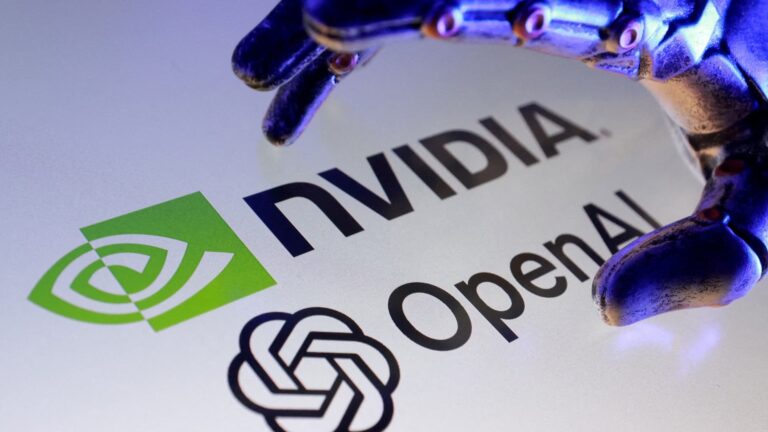Many predict that the artificial intelligence boom will dramatically change how people live and work, and the scale and pace of recent AI deals seems to reflect this. At the center are a handful of companies that are increasingly turning to each other to finance and build out the necessary infrastructure.
ChatGPT-maker OpenAI alone has racked up around $1 trillion in deals this year, according to a report from the Financial Times. In September, OpenAI confirmed that it would pay Oracle $300 billion for computer infrastructure over the course of five years. This deal is part of a $500 billion data center buildout project called Stargate, to which Japan’s SoftBank Group is also contributing. OpenAI has also inked a $22 billion deal with CoreWeave for use of its data centers, which are packed with Nvidia graphics processing units. Most recently, OpenAI announced a partnership with Broadcom to develop and deploy racks of chips designed by the AI startup. That deal amount is undisclosed. OpenAI has been able to go on this shopping spree because of a $100 billion investment from Nvidia, though a large portion of that money likely be used for leasing Nvidia’s GPUs. Microsoft has also invested about $14 billion in OpenAI since 2019.
Nvidia has also spun a similar web of intertwining AI deals. Nvidia in September agreed to pay up to $6.3 billion for any of CoreWeave’s unsold cloud-computing capacity through 2032. CoreWeave gets most of its GPUs that it then rents out to customers from Nvidia, which is also an investor in the AI cloud infrastructure company. Meanwhile, Oracle has purchased about $40 billion worth of Nvidia chips to build a data center for OpenAI, which is part of the Stargate project. Softbank has a $3 billion stake in Nvidia.
Some experts are worried that these inflated AI company valuations “are at a bubble.” A recent report by Bain & Company found that AI companies will need $2 trillion of annual revenue to fund the infrastructure needed to meet projected demand for AI by 2030. That’s an $800 billion shortfall.
But AI leaders are pushing back against concerns, saying that this is simply what it takes to make AI a reality.
“The largest tech companies in the world are purchasing this infrastructure because they have demand,” CoreWeave CEO Mike Intrator said on Mad Money on Oct. 8. “There’s nothing circular about that. It’s a fundamental infrastructure buildout that’s taking place, and when you have such a massive-scale investment in infrastructure, it is not unusual to see partnerships as people try to serve infrastructure to the consumer. It happens in other markets, it’s happening in this one.”
Watch the video for a visual representation of this entangled web of AI deals.

